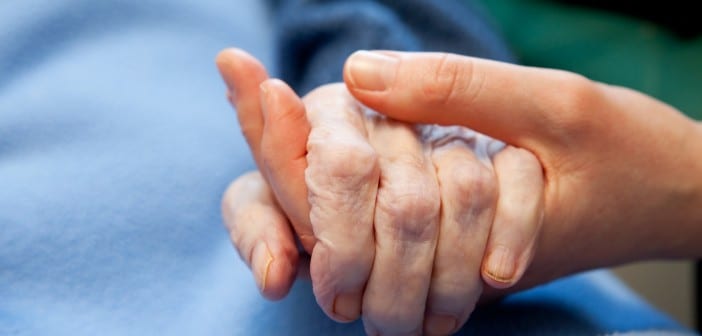Three magazines, all under the same parent company, marked Mother’s Day this year by promoting one assisted suicide story that is both tragic and disturbing.
Men’s magazine, Esquire, was first to release the story, entitled, “On Mother’s Day, My Mom Asked Me to Help End Her Life.” (Esquire is also known for having published a fawning profile of self-proclaimed Christian abortionist Willie Parker, in 2014.) As the title suggests, the story is told from the son, Alex Schlempp’s, vantage point. His mother, Giuliana, was diagnosed with pancreatic cancer and, like the late Brittany Maynard, sought assisted suicide as an alternative to facing the suffering that comes with a fatal cancer prognosis.
Alex repeatedly insists that his mother was of sound mind, but repeatedly divulges that she was unstable throughout her life. On the one hand, Alex recounts a history of affection between himself and his mother. On the other hand, said Alex, “she could be very stubborn and irrational,” and frequently an agent of what he called “bad decisions.” Giuliana was unpredictable, emotionally fickle, and manipulative. In one telling paragraph chronicling the days following his father’s unexpected death, Alex summarizes the breadth of Giuliana’s parental dysfunction:
She latched on to me as her caretaker and surrogate partner. At 13, even as I was pursuing my studies and taking piano and dance lessons, I began handling all of the family’s business affairs. Our relationship became defined by her annexation of my emotions and my occasional, futile efforts to stop it. Only when, at 19, I was accepted into the dance program at Juilliard and moved to New York was I able to extricate myself.
Yet, when Giuliana again “latches onto” Alex and presses her unrelenting death wish upon him, he is unable – or unwilling – to once again extricate himself. Together, the pair explore assisted suicide options in Switzerland – the only country with facilities offering death-on-demand to foreigners with almost no questions asked. The second facility the family considered, after rejecting the infamous Dignitas suicide program in Zurich due to the facility’s four-month waiting period, was located in Lugano. Ironically, the clinic is called “Liberty Life,” and when Alex’s sister visited to size up the option for her mother, Liberty Life was rejected. Alex recounts his sister’s findings:
It is a disaster. The clinic is located in an ugly industrial part of the city devoid of any civic touch. She phones us immediately. “It’s horrible,” she says. “The owner has been indicted for fraud in Italy. Cancel everything.”
Oddly, a facility expressly intended to “put [Giuliana] to death” was also expected to come equipped with the trappings of civility. Finally Giuliana settles on another ironically-named killing facility: Life Circle, in Basel. Run by a former Dignitas employee, Life Circle is similar to Dignitas but without the waiting period. The decision is cemented, and Alex and Giuliana board a flight shortly thereafter for Switzerland. For Giuliana, the ticket is one-way.
This story ends predictably. Giuliana becomes despondent but remains firm in her resolve. She unflinchingly proceeds with her death wish, apparently oblivious to how her death would affect anyone else in the process. Alex finds satisfaction, apparently, in thinking of Giuliana as being “enchanted” rather than dead, and he has her ashes turned into a diamond.
The agenda behind the triple-publication of this story is scarcely veiled. As with the highly-publicized Brittany Maynard story, media pawns are a valuable resource for euthanasia activists – and sometimes the cheerleaders of death even inadvertently admit to this. Read the full Esquire story here, and share your thoughts with us in the comments below.

